Health
Afghanistan’s health system is on brink of collapse: urgent action needed
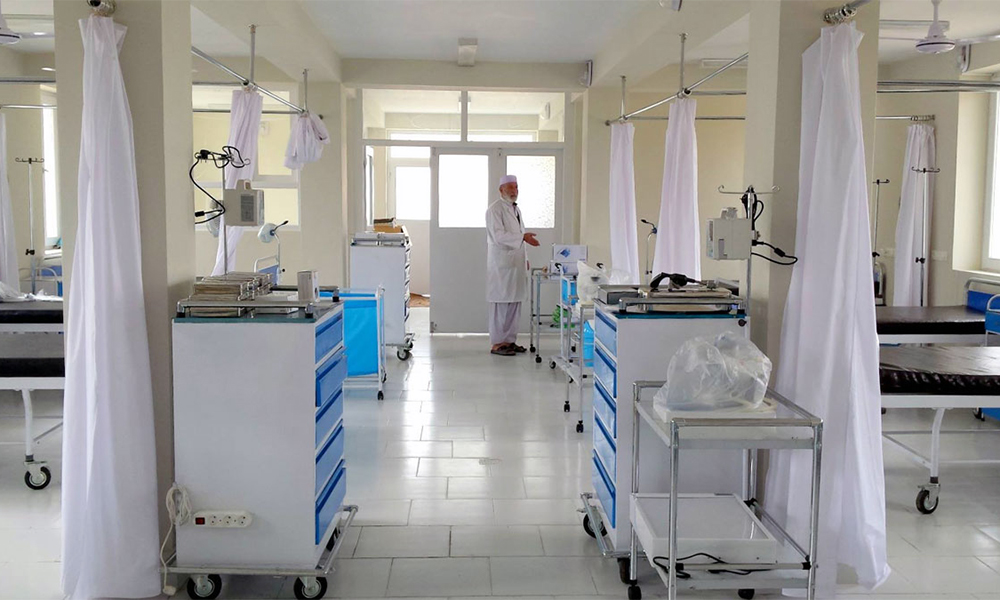
The World Health Organization (WHO) has once again appealed to the international community to find a funding mechanism to help prevent Afghanistan’s primary health care initiative from collapsing.
The WHO stated this week international donors need to find a funding mechanism for the Sehatmandi program, which is Afghanistan’s crucial primary health care initiative.
The Sehatmandi program is the backbone of Afghanistan’s health system, providing care for millions of people through 2,331 health facilities across the country.
However, since the Islamic Emirate of Afghanistan (IEA) took control, major funding for the program has been withdrawn.
Previously funded by the World Bank, the European Commission, and USAID, there are now serious challenges to continuing these vital primary health care services.
Over the last two decades, life expectancy has risen, and maternal, newborn and child deaths in Afghanistan have dramatically decreased, largely due to the success of the Sehatmandi program.
Today, the population’s health is seriously under threat and all the progress in health outcomes may be lost, the organization warned.
“The recent funding pause by key donors to the country’s biggest health programme (Sehatmandi) will cause the majority of the public health facilities to close. As a result, more mothers, infants and children will die of reduced access to essential health care.
“WHO is determined to work with partners in identifying a sustainable solution with the support of donors to maintain and scale up the lifesaving interventions when needed in the country,” said Dr Luo Dapeng, WHO Representative in Afghanistan this week.
Health
Health minister meets with Qatari envoy over building of 400-bed hospital in Kandahar

The Ministry of Public Health has announced that Noor Jalal Jalali, the acting public health minister, met with Murdif Al-Qashouti, the Chargé d’Affaires of the Qatari Embassy in Kabul, to discuss the construction of a planned 400-bed hospital by Qatar, the provision of equipment for hospitals, and the enhancement of the capacity of health workers in Kandahar province.
According to a statement, the Acting Minister of Public Health emphasized the importance of improving the capacity of health workers and equipping hospitals with standard facilities to better address patients’ needs and provide essential health services. He considers Qatar’s cooperation to be crucial.
In this meeting, Al-Qashouti assured the IEA of Qatar’s commitment to supporting various health sectors in Afghanistan.
In November 2023, the Ministry of Public Health had announced that Qatar planned to build a 400-bed hospital in Kandahar. In September 2023, reports also emerged about Qatar Charity’s commitment to constructing this hospital.
However, Qatar has not yet started the actual construction of the hospital.
International organizations have repeatedly warned that attention must be given to Afghanistan’s health system, as the country cannot effectively manage patients and combat infectious diseases such as polio and tuberculosis without the support of global organizations.
Health
Majority of WHO-supported facilities in Afghanistan risk shutdown by June
As of 4 March 2025, 167 health facilities had shut down due to funding shortages, cutting off lifesaving medical care to 1.6 million people
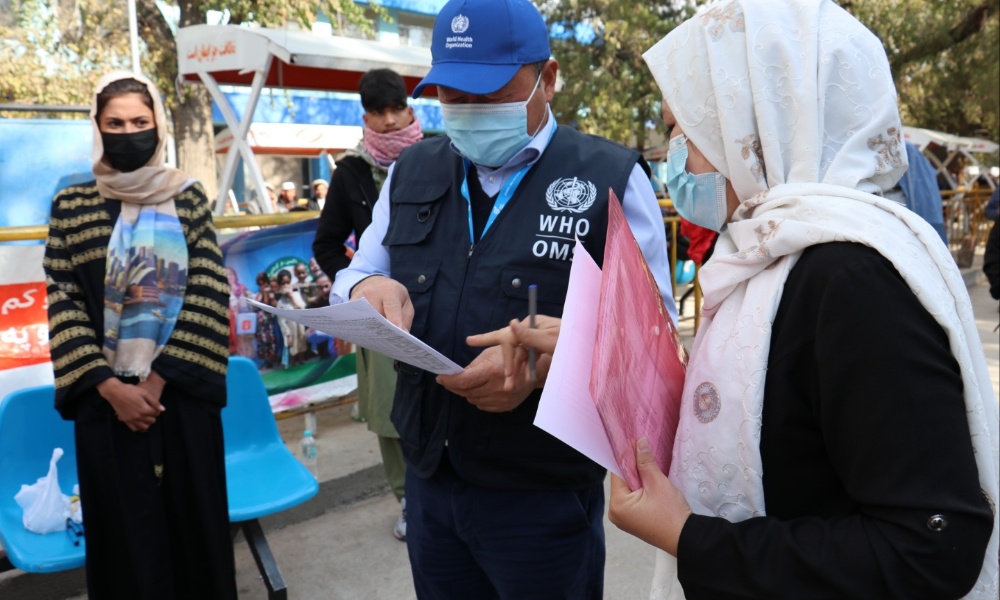
The World Health Organization (WHO) in Afghanistan is deeply concerned that funding shortages could force the closure of 80 percent of WHO-supported essential health care services across the country.
Millions of people, including vulnerable populations such as women, children, the elderly, the displaced and returnees, will be left without access to critical medical care, the organization said in a statement.
As of 4 March 2025, 167 health facilities had shut down due to funding shortages, cutting off lifesaving medical care to 1.6 million people across 25 provinces.
WHO warned that without urgent intervention, another 220 facilities could close by June 2025, leaving an additional 1.8 million Afghans without access to primary health care.
In the worst affected regions – Northern, Western and Northeastern Afghanistan – more than a third of health care centres have shut down, raising alarms about an imminent humanitarian crisis.
“These closures are not just numbers on a report, they represent mothers unable to give birth safely, children missing lifesaving vaccinations, entire communities left without protection from deadly disease outbreaks,” said WHO Representative and Head of Mission in Afghanistan Dr Edwin Ceniza Salvador.
“The consequences will be measured in lives lost.”
Afghanistan is already battling multiple health emergencies, including outbreaks of measles, malaria, dengue, polio and Crimean-Congo haemorrhagic fever.
Without functioning health facilities, efforts to control these diseases are severely hindered. Over 16 000 suspected measles cases, including 111 deaths, were reported in the first two months of 2025. With immunization rates at critically low levels (only 51% for the first dose of the measles vaccine and 37% for the second), children are at heightened risk of preventable illness and death.
While some donors continue to support Afghanistan’s health sector, funding has been significantly reduced as development aid priorities have shifted. The needs, however, remain immense, and current support is not enough to sustain critical health care services for millions of Afghans, WHO stated.
“This is not just about funding. It is a humanitarian emergency that threatens to undo years of progress in strengthening Afghanistan’s health system,” said Salvador.
“Every day that passes without our collective support brings more suffering, more preventable deaths and lasting damage to the country’s health care infrastructure.”
Health
Saudi Arabia confirms $500 million pledge to Afghanistan, Pakistan polio campaign
The WHO said the funds, initially pledged in April 2024, will be disbursed to help end the wild form of polio in Pakistan and Afghanistan and stop outbreaks of variant polio.
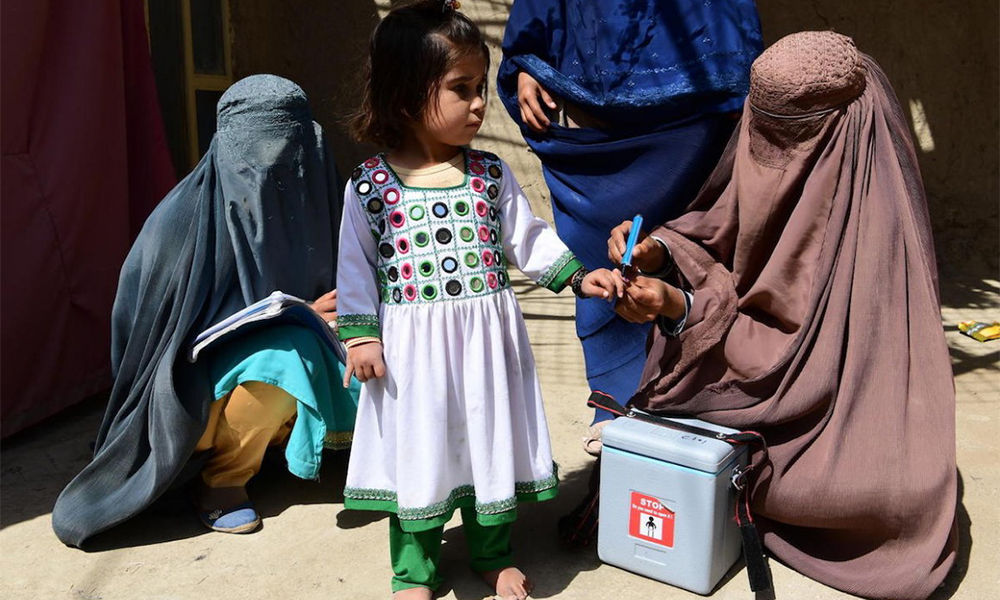
The World Health Organization said Monday Saudi Arabia has reaffirmed its $500 million commitment to the Global Polio Eradication Initiative (GPEI).
The WHO said the funds, initially pledged in April 2024, will be disbursed to help end the wild form of polio in Pakistan and Afghanistan and stop outbreaks of variant polio, Reuters reported.
Wild polio — a naturally occurring form of the viral disease — is endemic in Pakistan and Afghanistan, which together reported 99 cases last year, according to the WHO. Variant polio is caused by the weakening of the oral polio vaccine.
The GPEI hopes to declare an end to the wild virus and the vaccine-derived variant by 2027 and 2029, respectively, compared with a previous deadline of 2026 for both forms.
-

 Sport5 days ago
Sport5 days agoACB names Afghanistan A squad for tri-nation series
-
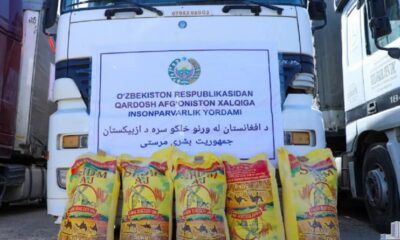
 Latest News5 days ago
Latest News5 days agoUzbekistan sends essential food aid to Afghanistan
-

 International Sports4 days ago
International Sports4 days agoIPL 2025: Last over drama; Ashutosh Sharma clinches win for Delhi Capitals
-
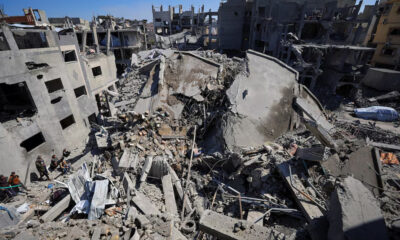
 Regional4 days ago
Regional4 days agoEgypt makes new proposal to restore Gaza truce as Israeli strikes kill 65
-

 Sport4 days ago
Sport4 days agoAfghanistan eliminated from Asian Beach Soccer Championship
-
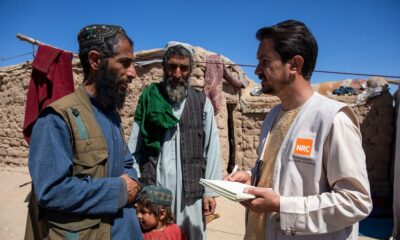
 Latest News4 days ago
Latest News4 days agoNorwegian Refugee Council cuts back on essential humanitarian services in Afghanistan
-
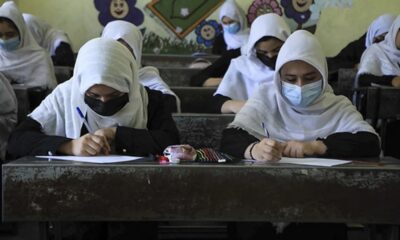
 Latest News4 days ago
Latest News4 days agoUN warns over 4 million Afghan girls will be deprived of education by 2030 if ban continues
-

 World3 days ago
World3 days agoSecretive Chinese network tries to lure fired US federal workers, research shows

























